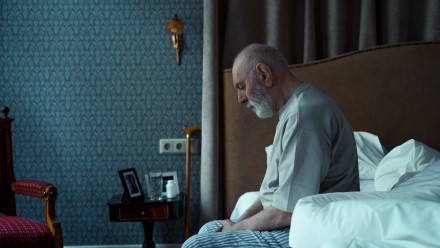The world's best evidence-based loneliness intervention
This article first appeared in Research Australia's INSPIRE Magazine and has been republished with permission.
Humans are social beings. The importance of social connection for our health and longevity is well documented. Being part of a social group provides us with important psychological resources to support our health – giving us a sense of belonging, purpose, self-esteem and support.
Being social also protects us against declines in mental and physical health, including lowering blood pressure, increasing cognitive function and reducing depression, to name just a few. Research shows this to be the case with healthy adults within the general community population and with adults who are experiencing clinical levels of mental ill-health.
Interventions for loneliness have, traditionally, been individualist in focus – either training the individual in social skills, or organising opportunities to create friendships. For example, pairing a lonely person in aged care with a young person. However, the effectiveness of these interventions was described as "disappointing" in a 2010 meta-analysis by Masi and colleagues, achieving "at best, modest improvement but not recovery".
A Group Approach
The Groups 4 Health Program (G4H) is different because it builds on the social psychological science of how social connection works, and focuses on building group-based belonging rather than individual cognitive change or one-on-one friendships. It has the best supporting evidence of any loneliness intervention in the world.
Created in 2014, led by researchers Cath Haslam and Tegan Cruwys at the University of Queensland (UQ), the intervention is a manualised group-based psychotherapeutic program, accompanied by a facilitator manual and participant workbook providing guidance on the topics and skills to be covered in each session, which focuses on empowering people to build meaningful social group connections.
It is suitable for use by any practitioner with training in supportive counselling skills including social workers, teachers, allied health professionals, and of course, psychologists.
Clinical trials undertaken by the Australian National University (ANU) and UQ show that it outperforms standard care for loneliness, and is comparably effective for depression as other ‘Treatment As Usual’ that people may have been accessing, including the gold standard of Cognitive Behavioural Therapy (CBT).
The most recent clinical trial found that participants in the G4H program maintained their lowered levels of depression at a similar rate to CBT, 12-months post program. Perhaps more importantly, G4H outperformed CBT in its effectiveness in reducing loneliness in a post-program follow-up.
Versatile
G4H is potentially suitable for any population experiencing or at risk of loneliness, including those going through a life transition. For example, we know that loneliness predicts the health of a person in retirement four times more strongly than their financial status. Retirees routinely receive support for financial planning; why not social planning?
Multiple adaptations of the program are currently in use within Australia and internationally, including adaptions that target substance use (Groups 4 Belonging), long-term hospital stays (Groups 4 Health: Going Home), retirement (Groups 4 Health: Retirement), and integration into new educational settings (Groups 4 Education). There are also plans for a version for people with chronic disease to be combined with a lifestyle management program (Groups 4 Diabetes) pending funding.
The Groups 4 Health program was recently accepted for publication in the Treatments that Work Oxford University series, an honour reserved for those behavioural interventions with only the strongest evidence of efficacy, and will soon be available for purchase globally.










